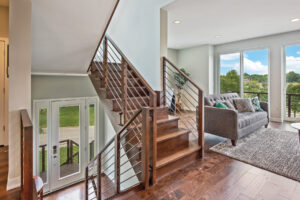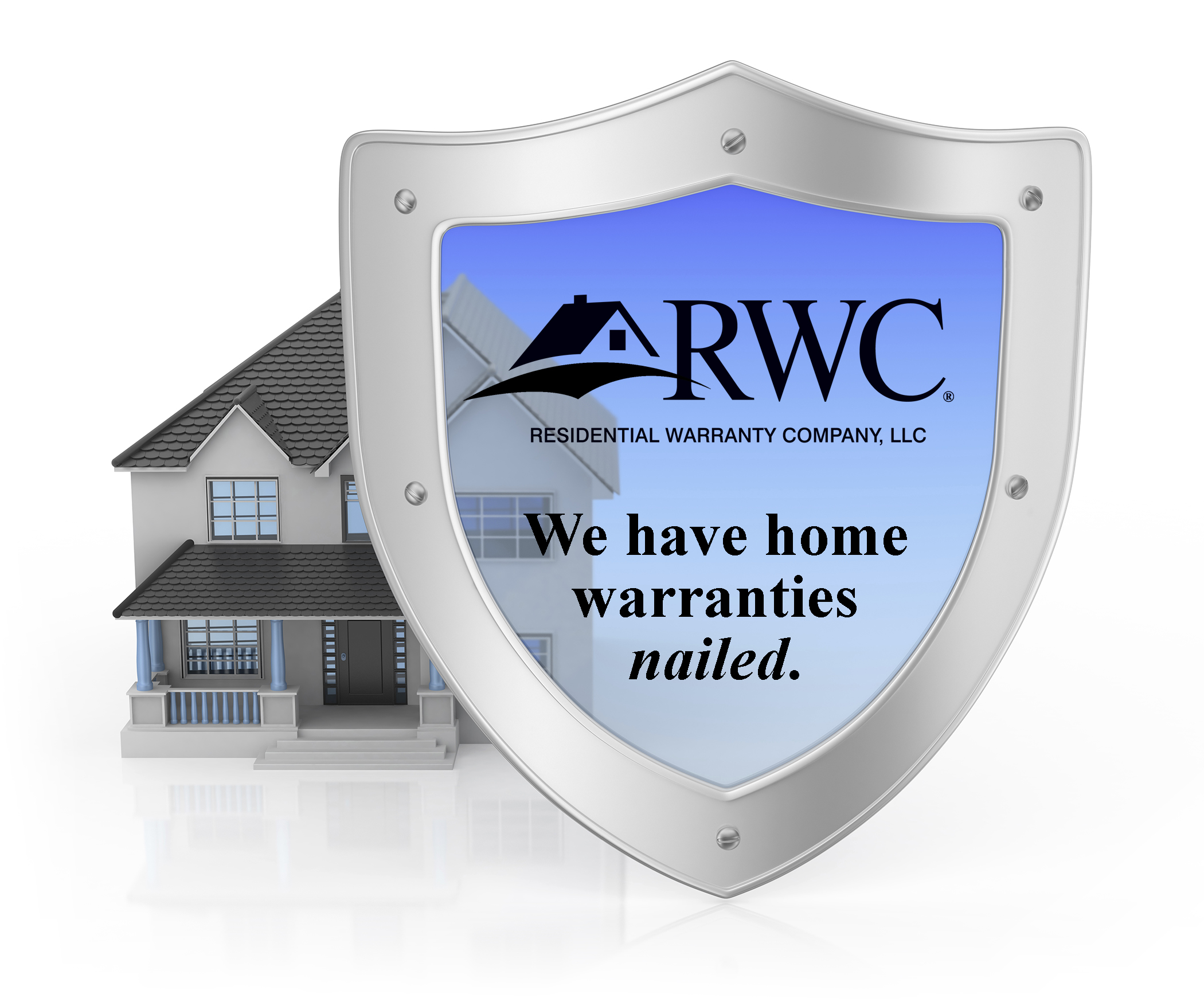While you may be aware that prefabricated homes have been around for quite some time, have you really given them the consideration they deserve? There are many factors that make this niche of the housing market an incredibly intelligent and environmentally sound option.
If you’re looking for a build that involves a quicker, less stressful timeframe, can potentially cost less, and have a positive impact on the environment then read up on the benefits of flat pack and modular living here! https://www.houzz.com/magazine/10-things-to-know-about-prefab-homes-stsetivw-vs~33040342
Furthermore, did you know that RWC offers warranties on Modular homes? One of the changes seen over the last several years is the awareness of and increased need for written warranties on homes of all types, including Building Systems. So, we delivered.
RWC takes a two-pronged approach to warranties for Building Systems. 
Manufacturer’s Warranty: Manufacturers may join RWC and offer a 10 year written and insured structural warranty on the homes they deliver to you, the Builder.
- 10 years of coverage on major structural defects.
- Option to provide 1 year of coverage on workmanship and materials.
- Manufacturer is responsible for defects in Year 1.
- RWC’s insurer is responsible for defects in Years 2 through 10.
- Manufacturer’s Warranty deals specifically with the work done in the factory.
- Defects in work provided on site by Builder is excluded.
Builder’s Warranty: As the Builder onsite, you may also provide a 10 year written and insured warranty on the work you do to the home, including foundations.
- Warranty protection on the work provided by the Builder.
- Warranty interpretation, mediation and arbitration to expedite the resolution of homeowner complaints.
- Two coverage options available: Full Coverage and Structural Only Coverage.
- Authorized Builders for RWC Manufacturer Members qualify for reduced enrollment rates.
Interested? Go here for a quote and more info https://www.rwcwarranty.com/builders/warranty-options/building-system-warranty/
 Key Estates Warranty is a new affiliate of Residential Warranty Company, LLC, HOME of Texas and MHWC is now offering extended warranties for homes involved in real estate transactions across the country. Offered exclusively through a network of approved Real Estate Professionals, the Key Estates Warranty program provides extended warranty protection on a variety of appliances, systems and even structural components in existing homes.
Key Estates Warranty is a new affiliate of Residential Warranty Company, LLC, HOME of Texas and MHWC is now offering extended warranties for homes involved in real estate transactions across the country. Offered exclusively through a network of approved Real Estate Professionals, the Key Estates Warranty program provides extended warranty protection on a variety of appliances, systems and even structural components in existing homes.
Homeowners understand that eventually, most things break down. Extended warranties are a cost-effective way to deal with expensive and unexpected repair bills after moving into a newly purchased home. The package approach of Key Estates provides the homebuyer with the security of more comprehensive coverage but at a substantially lower rate than if they were to buy individual extended warranties on each item of equipment. Through Key Estates, homeowners are protected against potential financial burdens for one or two-year terms on covered items. Without an extended warranty, homeowners may have to pay hundreds – or even thousands - of dollars for repairs. With Key Estates, homeowners are responsible for only a small service fee.
Key Estates personnel will conduct a remote visual inspection of the appliances and mechanical systems that are eligible for coverage. We will visually inspect photos /videos of the appliances for “trouble spots” that could indicate an imminent failure and search for recall notices. When the appliances pass the inspection, Key Estates certifies the home as warrantable and an insurance backed warranty is issued. This certification should add an additional layer of peace of mind for everyone involved in the transaction.
Major Structural Defect Coverage
With the average cost of major structural defect repairs in this country exceeding $35,000, Key Estates offers valuable protection from financial disaster should a structural defect develop in their existing home. Under Key Estates, a homebuyer may opt for major structural defect coverage – similar to the coverage provided to new home builders under our 10-year warranty plans – to be added to their plan for 1 or 2 years. No other resale warranty plan in the country offers this type of tried and true structural protection on existing homes! In addition, a structural home inspection conducted by a professional, licensed engineer, is part of the requirement to verify the structural ‘health’ of the home. This optional structural coverage is available everywhere except for Colorado and certain areas in Texas that have been designated as active soils areas.
Flexibility & Control
In addition to the never before offered structural coverage on existing homes, setting this program apart from others is the level of flexibility built into our system. Homeowners have the freedom to choose their own repair provider when a covered appliance or system breaks down. Additionally, they can select optional coverage for many of the ‘extras’ such as swimming pools, spas, freezers, etc. to further customize their plan.
Benefits
Real Estate Professionals benefit from Key Estates in a variety of ways. Exposure to customer service issues is dramatically reduced since the Key Estates’ administrator takes over complaint handling for problems with covered appliances, systems, and structural components. An administrative fee may be paid to the real estate professional for every warranty sold, generating extra revenue to make the program profitable and benefit that important bottom line. Ultimately, Key Estates provides a unique marketing tool that will set the Real Estate Professional apart from the competition.
Contact Us
For availability and more information about Key Estates or any of the other plans RWC and Affiliates have to offer, go to www.KeyEstatesWarranty.com, call 866-394-5135 ext. 2149 or email us at Sales@KeyEstatesWarranty.com.
A home is one of the biggest investments a person will ever make and in order to keep that home glowing and increasing in value, a well-maintained property should be the goal for years to come. Of course, a warranty will provide protection, but seasonal maintenance by the homeowner is also key to long-lasting digs. As a professional in the industry, you’ve seen first-hand what irresponsibility will do to a residence. It’s imperative to remind your buyers that even though a home may be brand spanking new, regular maintenance is absolutely necessary to ensure safety, comfort, and retain resale value.
It’s easy to preach to a homebuyer about keeping up with seasonal tasks and send them on their merry way, but why not arm them with a comprehensive list of things they should be aware of? Steer them toward RWC's "season maintenance checklist" under the Homeowner's tab. This is a great tool for homeowners to stay on top of things. Furthermore, you as the builder must have gathered hundreds of maintenance tips during your career. Offer up those tips and hints as you meet with your clients throughout the home building journey.
Just for fun, here is a home maintenance quiz that will test your know-how. While this quiz does not address every conventional home maintenance project, it does provide helpful tips that may have been overlooked.
1. How often do forced-air furnace filters need to be changed?
At least every three months during the heating season.
2. What part of the faucet usually needs to be replaced when you have a water leak?
The washer.
3. Should you run hot or cold water through your garbage disposal?
Cold water.
4. How often should the moving parts of garage doors be oiled?
Every three months.
5. What tools can you use to unclog your drains?
A plunger and a plumber’s snake.
6. What tool can be used to unclog a toilet?
Coil spring-steel auger.
7. What faucet part needs to be cleaned every three to four months?
Aerator — the screen inside the end of the faucet.
8. What can you use for traction on icy sidewalks, steps, and driveways?
Cat litter or sand — never use salt because it damages the pavement.
9. Where should the fire in your fireplace be built?
On the irons or grate, never on the fireplace floor.
10. What will prevent soot and add color to the fire in your fireplace?
Throw in a handful of salt.
11. Where should your firewood be stored?
Outside, away from your house and not directly on the ground.
12. What helps keep unpainted concrete floors easy to keep clean?
Concrete Sealer.
13. What should you use to clean unpainted concrete floors?
A solution of 4 to 6 tablespoons of washing soda in a gallon of hot water. Mix scouring powder to the solution for tough jobs.
14. Why should frozen pipes be thawed slowly?
Frozen pipes should be thawed slowly to prevent the formation of steam, which could cause the pipe to burst.
15. How often should your roof be inspected?
A qualified roofer should inspect your roof every three years.
16. What should be regularly checked on your security system?
The alarms and circuit breakers should be checked to make sure they are in working order and the sensors should be inspected one by one.
17. At what temperature should your water heater be set?
120 degrees Fahrenheit
18. How often do skylights need to be inspected?
Skylights should be inspected each time your roof is inspected so leaks don’t develop from cracks and interruptions around its seals, caulking and flashings.
19. What can you use to help a window slide easily?
Rub the channel with a piece of paraffin.
20. What should you look for when you inspect your siding yearly?
Determine if wood-sided homes need to be repainted; check to see if the caulking around the windows and doors has split and cracked, and replace the caulk; clean the mildew; trim shrubbery away so it does not touch the siding.
(Quiz provided by NAHB.org)
 You know homebuyers. They always have lots of questions. And not only just for you but they want to know about the products you used in their home. Below are many of the questions we get on a regular basis about the warranty you are providing with the homes you build. We just thought you should know in case any of these questions come up in your own conversations with your customers. If you need more information, don’t hesitate to give us a call.
You know homebuyers. They always have lots of questions. And not only just for you but they want to know about the products you used in their home. Below are many of the questions we get on a regular basis about the warranty you are providing with the homes you build. We just thought you should know in case any of these questions come up in your own conversations with your customers. If you need more information, don’t hesitate to give us a call.
What is the value of an RWC warranty to my homebuyers?
- An RWC warranty provides insured, written coverage on various items for a specific period of time.
- Third party assistance to resolve customer service issues is available under all of our programs.
- Homeowners receive a clearly written warranty document spelling out exactly what is and is not covered.
- The resale value of your buyer’s home is increased when our warranty is transferred to the next owner.
- Homeowners have assurance that assistance is available if a covered item is defective.
- Builders wishing to use RWC or an Affiliate’s warranty must demonstrate technical competence, financial stability and ethical business dealings with their customers. Knowing that your builder is a member of one of our programs is assurance that these standards have been met or exceeded.
- The average cost to repair a structural failure exceeds $30,000. Having a warranty in place means that covered structural components will be repaired without causing you or your homeowner serious financial hardship.
- There is a greater likelihood of a major structural defect developing in a home than there is a fire which causes major damage. Homeowners probably have insurance to protect against fire damage. Why not be protected from structural failures as well?
What exactly is covered under my warranty?
RWC and Affiliates have over 75 different warranty options. So the answer to this question depends on which warranty was placed on the home. Coverage varies depending on the program selected by the Builder and the state in which the home is located. Refer to the warranty book received at closing for exact coverage and warranty terms.
How does a homeowner start the claims process?
The specific procedures to address a potential defect in a home are spelled out in the warranty book. The homeowner must send written documentation either by email to RWC at warranty.resolution@rwcwarranty.com or via certified mail, return receipt requested in order to initiate this process. We do not accept telephone or fax requests at this time.
What are mediation and arbitration?
RWC knows that, in the majority of cases, the root of many disputes is the lack of communication between a builder and a homeowner. Sometimes, all it takes to get an issue resolved is someone to take on the role of mediator and assist the others in coming to a fair and reasonable agreement, based on the warranty standards provided. Prior to heading to formal arbitration or costly litigation, RWC does its best to mediate disputes between Members and Homeowners.
Arbitration is a formal process conducted by an independent, neutral arbitrator to resolve disputes between two or more parties. In the case of our warranty programs, RWC uses arbitrators experienced in arbitrating residential construction matters. Unless prohibited by law, the decision of the arbitrator under our programs is binding on all parties, including the homeowner as well as the builder.
Your buyer has questions about the paperwork received regarding their home’s enrollment (duplicate book, incorrect information on Application for Warranty, etc). How do they contact RWC?
For questions regarding the Application for Warranty Form or any other Enrollment Paperwork issue, the homeowner may contact our main office at 717-561-4480 or click here and fill out our information request form.
 The last couple decades have seen dramatic changes in the relationship between builders and their customers. A generation ago construction defect litigation rarely affected builders. In many jurisdictions, the old legal maxim caveat emptor, or “let the buyer beware”, applied to the sale of new homes. Twenty-first-century American society has turned that principle on its head. A more accurate watchword in these times is caveat builder or “let the builder beware” of litigious homeowners and plaintiffs' attorneys bent on making a lucrative monetary recovery in court for every perceived defect in every new home.
The last couple decades have seen dramatic changes in the relationship between builders and their customers. A generation ago construction defect litigation rarely affected builders. In many jurisdictions, the old legal maxim caveat emptor, or “let the buyer beware”, applied to the sale of new homes. Twenty-first-century American society has turned that principle on its head. A more accurate watchword in these times is caveat builder or “let the builder beware” of litigious homeowners and plaintiffs' attorneys bent on making a lucrative monetary recovery in court for every perceived defect in every new home.
Residential construction litigation has increased in frequency and expense dramatically in the past two decades and exponentially in the past few years. Homeowners recover hundreds of millions of dollars from builders every year, and a typical settlement of a condominium association claim is not measured in thousands of dollars, but in millions of dollars.
A recent study revealed that more than half of all homeowner claims are about actual work performed in the building of the house and not about design, materials or maintenance. These complaints can create logistical headaches for builders and can lead to litigation that is expensive and tends to distract builders from their primary focus of building and selling homes. Express home warranties reduce the work, anxiety, and expense of these kinds of claims by spelling out the rights and remedies of the parties and by providing for arbitration, a quick and relatively inexpensive method for resolving disputes.
Arbitration provisions in express warranties provide that mutually agreed upon, neutral arbitrators hear the evidence from the parties and determine, without passion or prejudice for either side, who owes what to whom. Because most arbitration services have streamlined procedures, and because there are no juries for whom the lawyers must “dramatize” the case, arbitrations often result in less expense and reduced animosity between the parties.
In today's world, there is no reason why builders or homeowners should beware of dealing with each other after the settlement on a new home. If a builder provides his customer with an express warranty administered by a neutral third party, such as a new home builder warranty by RWC, both the builder and the homeowner can enjoy peace of mind because they have a clear and written description of how the home should perform and a quick, fair, and inexpensive process for resolving any disputes that might arise. All of RWC's warranty programs include out effective warranty resolution process which includes mediation and, if needed, formal arbitration.
If you need information on the procedures and/or rates to enroll ALL your building projects (remodeling, commercial, detached garages, condominiums, townhomes, etc.) with RWC to provide yourself with the most warranty protection available, contact your Account Executive at 800-247-1812, Ext 2149.
 It takes many components to build a home, and as a builder, you have to make many decisions to make. The homes you build need to be of quality construction, attractive and offer inviting features to pull in buyers. Though not a physical characteristic such as a large kitchen island or crown molding, a new home warranty is an equally impressive detail that proves to be advantageous over and over again.
It takes many components to build a home, and as a builder, you have to make many decisions to make. The homes you build need to be of quality construction, attractive and offer inviting features to pull in buyers. Though not a physical characteristic such as a large kitchen island or crown molding, a new home warranty is an equally impressive detail that proves to be advantageous over and over again.
If you haven’t ever thought about offering a warranty on your homes or are wondering “What’s in it for me?”, Residential Warranty Company, LLC (RWC) has the answers.
1. Opens the Door:
Homeowners looking for assurance that they have picked a quality builder are more confident in their choice when the RWC warranty comes with their home. And RWC’s approval by FHA and VA can assist you with your sales and help eliminate inspections and facilitate settlements.
2. Levels the Playing Field
Customer service can be a tricky issue. Homebuyers today can be demanding and unfortunately, too often unreasonable. Yet your reputation and future referrals often hang in the balance. You can provide an implied warranty (increase your exposure) and take a chance. Or you can provide the RWC written warranty (limit exposure) and enjoy its benefits. Specific warranty standards help you manage customer service problems and reduce costs. The RWC warranty puts “reason” back into the equation and lets you provide fair customer service. And when disputes arise - as they certainly will - RWC offers effective mediation and binding arbitration.
3. Marketing Tool
Hammers...saws...nails...it takes lots of tools to build a house. It also takes lots of tools to build a business and RWC provides you with some great marketing tools. Buyers today want choices and RWC offers more choices in warranty plans than any other warranty company. Convincing a buyer that you have what he wants or needs is the surest way to a sale. We want to help you convince that buyer. Not only does RWC offer a 10 year new home warranty, but a variety of other warranties are available as well. Other options include remodeling warranties, detached garage, building systems, HUD-code warranties, and customized state warranties... just to name a few. See our entire menu of choices here.
Don’t hesitate ~ RWC is a great addition to your toolbox! Talk to an RWC Account Executive today about the benefits of being an RWC Member or click here to get a warranty quote.
MORE PROSPECTS = MORE POTENTIAL BUYERS = MORE HOMES SOLD
